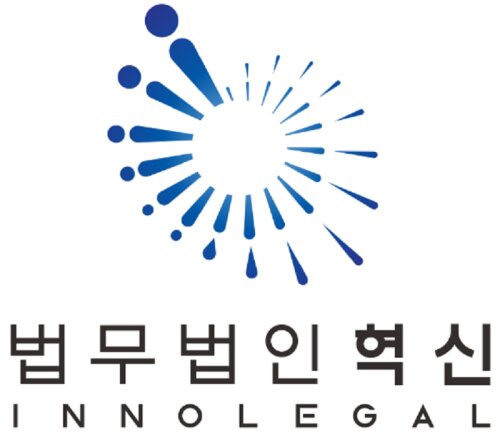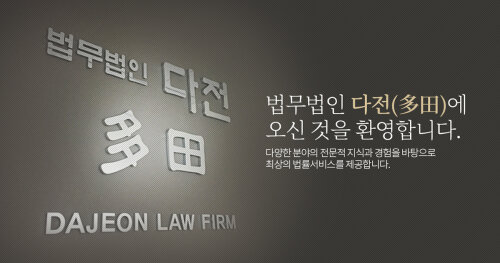Best Commercial Real Estate Lawyers in Seoul
Share your needs with us, get contacted by law firms.
Free. Takes 2 min.
Free Guide to Hiring a Real Estate Lawyer
List of the best lawyers in Seoul, South Korea
About Commercial Real Estate Law in Seoul, South Korea
Commercial real estate in Seoul, South Korea refers to the buying, selling, leasing, or development of properties used for commercial purposes such as offices, retail spaces, industrial facilities, and hotels. The laws that govern commercial real estate in Seoul are aimed at regulating transactions, protecting property rights, and ensuring fair business practices.
Why You May Need a Lawyer
Legal issues in commercial real estate can be complex and involve significant financial implications. You may need a lawyer in situations such as negotiating leases, drafting contracts, resolving disputes, conducting due diligence, or handling regulatory compliance. A lawyer can provide guidance, review documents, represent you in negotiations, and protect your interests.
Local Laws Overview
Key aspects of local laws relevant to commercial real estate in Seoul, South Korea include regulations on zoning, land use, building permits, environmental compliance, taxes, financing, landlord-tenant relationships, and construction contracts. It is important to be aware of these laws and seek legal advice to ensure compliance and protect your investment.
Frequently Asked Questions
1. What are the requirements for foreign investors in commercial real estate in Seoul?
Foreign investors need to comply with regulations on land ownership, investment restrictions, and tax implications. It is advisable to consult with a lawyer experienced in foreign investments to navigate these requirements.
2. How can I resolve a dispute with a landlord or tenant in Seoul?
Disputes with landlords or tenants can be resolved through negotiation, mediation, or litigation. A lawyer specializing in real estate law can help you assess your options and pursue the most effective course of action.
3. What are the steps involved in purchasing commercial property in Seoul?
The steps typically involve due diligence, negotiations, drafting a sales contract, obtaining financing, completing the transaction, and registering the property. A lawyer can assist you at each stage to ensure a smooth and legally sound transaction.
4. How can I verify the legal status of a commercial property in Seoul?
You can conduct a title search, review official records, verify permits and licenses, check for any liens or encumbrances, and inspect the property for compliance with regulations. A lawyer can help you with this process and identify any potential legal issues.
5. What are the tax implications of owning commercial real estate in Seoul?
Owning commercial real estate in Seoul may subject you to property taxes, income taxes, capital gains taxes, and other tax liabilities. It is advisable to seek advice from a tax lawyer to understand your tax obligations and minimize your tax exposure.
6. Can I lease commercial property without a written agreement in Seoul?
While oral leases are legally valid in some cases, it is highly recommended to have a written lease agreement that specifies the terms and conditions of the lease. A lawyer can help you draft a lease agreement that protects your interests and complies with local laws.
7. What are the regulations on renovating or developing commercial property in Seoul?
Renovating or developing commercial property may require permits, approvals, inspections, and compliance with building codes, environmental regulations, and zoning laws. A lawyer can guide you through the regulatory process and ensure your project is legally compliant.
8. How can I protect my intellectual property rights in a commercial real estate transaction in Seoul?
Intellectual property rights such as trademarks, copyrights, or patents may be relevant in commercial real estate transactions involving branding, designs, or technology. A lawyer specializing in intellectual property can help you protect your rights, negotiate licensing agreements, or resolve disputes.
9. What are the common pitfalls to avoid in commercial real estate transactions in Seoul?
Common pitfalls include inadequate due diligence, vague or incomplete contracts, improper financing arrangements, regulatory non-compliance, or failure to anticipate future legal issues. A lawyer can help you avoid these pitfalls and safeguard your investment.
10. How can I find a reputable lawyer for commercial real estate in Seoul?
You can ask for referrals from colleagues, research online directories, contact legal associations, or consult with real estate professionals for recommendations. It is important to choose a lawyer with expertise in commercial real estate law, a good reputation, and experience in handling similar cases.
Additional Resources
For additional resources on commercial real estate in Seoul, South Korea, you may consider contacting the Korea Real Estate Board, the Seoul Metropolitan Government, the Ministry of Land, Infrastructure and Transport, or seeking assistance from the Korean Bar Association. These organizations can provide information, guidance, and support for your legal needs.
Next Steps
If you require legal assistance in commercial real estate in Seoul, South Korea, the next step is to schedule a consultation with a qualified lawyer specializing in real estate law. During the consultation, you can discuss your specific legal issues, assess your options, and decide on the best course of action to protect your interests and achieve your goals.
Lawzana helps you find the best lawyers and law firms in Seoul through a curated and pre-screened list of qualified legal professionals. Our platform offers rankings and detailed profiles of attorneys and law firms, allowing you to compare based on practice areas, including Commercial Real Estate, experience, and client feedback.
Each profile includes a description of the firm's areas of practice, client reviews, team members and partners, year of establishment, spoken languages, office locations, contact information, social media presence, and any published articles or resources. Most firms on our platform speak English and are experienced in both local and international legal matters.
Get a quote from top-rated law firms in Seoul, South Korea — quickly, securely, and without unnecessary hassle.
Disclaimer:
The information provided on this page is for general informational purposes only and does not constitute legal advice. While we strive to ensure the accuracy and relevance of the content, legal information may change over time, and interpretations of the law can vary. You should always consult with a qualified legal professional for advice specific to your situation.
We disclaim all liability for actions taken or not taken based on the content of this page. If you believe any information is incorrect or outdated, please contact us, and we will review and update it where appropriate.
















